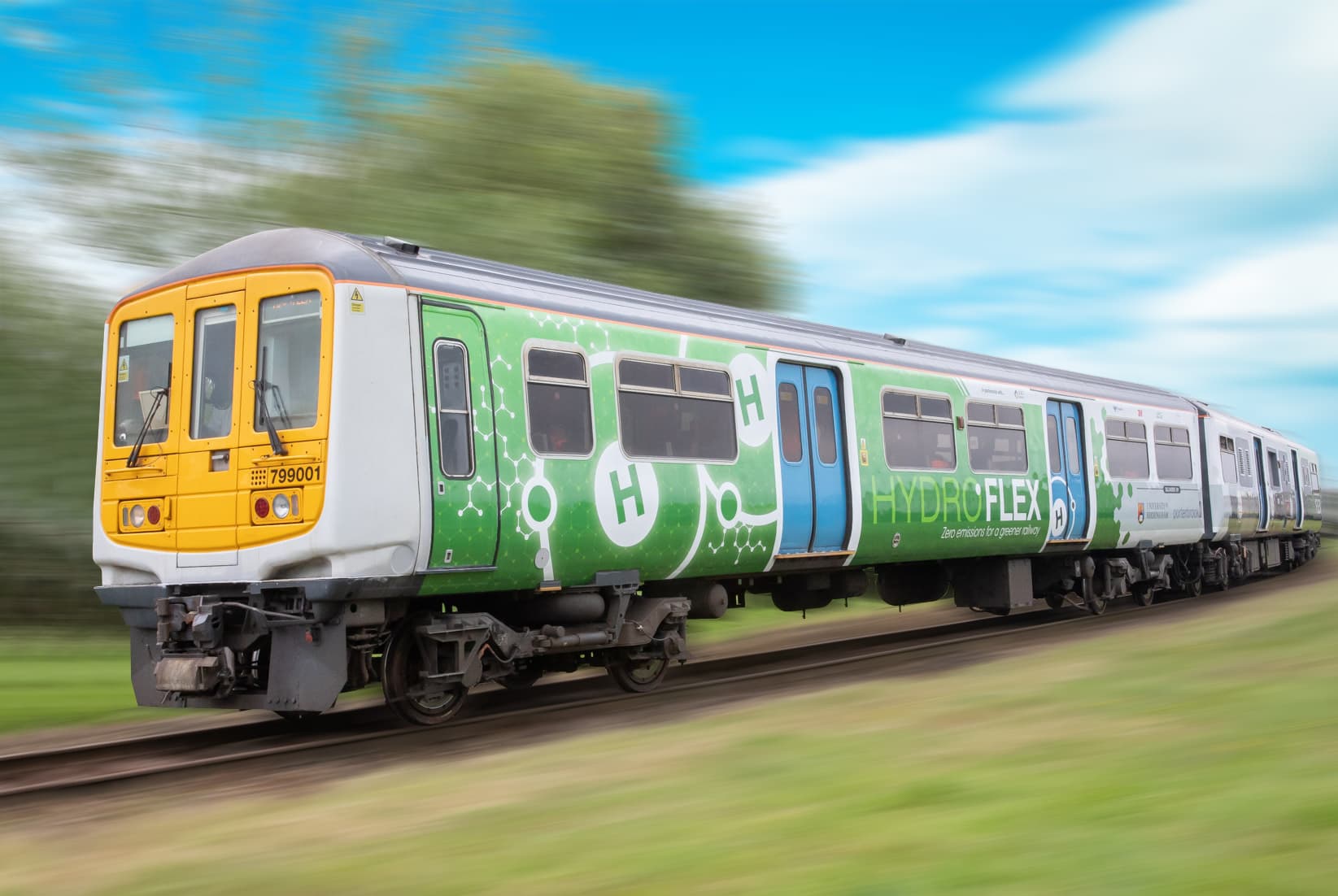UK trials hydrogen-powered train in latest step forward for transport innovation

University of Birmingham | Porterbrook
Trials of a hydrogen-powered train are underway in the U.K. with an initial journey successfully completed between the locations of Long Marston and Evesham in the West Midlands region of England.
The HydroFLEX train — which has been developed by a team from the University of Birmingham and Porterbrook, a rolling stock firm — uses a fuel-cell which combines hydrogen and oxygen to generate electricity, heat and water.
The train has been fitted with a range of kit inside one of its carriages. This tech includes a hydrogen fuel tank, the aforementioned fuel-cell and lithium ion batteries for storage. It’s hoped that the technology will be available to retrofit trains already in use by the year 2023.
A statement issued Wednesday, published on the website of both the University of Birmingham and U.K. government, said the university was also, “developing a hydrogen and battery powered module that can be fitted underneath the train.” The idea behind this modification is that it will create more room in the carriage to host passengers.
In its own announcement, Porterbrook described the train being used in the trials as a “demonstrator unit.” Citing customer demand, the firm also said it planned to put the HydroFLEX into production. This version of the train, it added, would “be configured for operation using both overhead-electric-wires and hydrogen for non-electrified routes.”
The trials have been backed by a grant of £750,000 (around $962,362) from the U.K.’s Department of Transport, while over £1 million has already been invested in the project by the University of Birmingham and Porterbrook.
Wednesday’s news comes at the end of a month that’s seen several interesting developments in the arena of hydrogen-powered transport.
Last week, in airspace over England, a hydrogen fuel-cell plane capable of carrying passengers completed its maiden flight. A few days earlier, Airbus released details of three hydrogen-fueled concept planes, saying they could enter service by the year 2035.
Earlier in the month ÖBB, the Austrian Federal Railways, said a hydrogen-powered train would commence a passenger service trial in southern areas of Lower Austria.
Built by European transport firm Alstom, the Coradia iLint deployed in Austria also harnesses fuel-cell technology to turn oxygen and hydrogen into electricity. According to the company, it can reach speeds of up to 140 kilometers per hour, is low-noise and “emits only steam and water.”
The train has already carried passengers in parts of Germany and underwent ten days of testing on a 65 kilometer stretch of railway in the Netherlands earlier this year.




